EN
2023-11-08
On October 27, UnionClin, in collaboration with Hangzhou Biopharma Town, Hongren Pharmaceutical, and Hangzhou HDXX, invited clinical medical experts, experienced audit mentors, outstanding industry enterprises, and professional partners to gather in Hangzhou. Focusing on the challenges throughout the entire process from new drug development to market launch, they engaged in brainstorming through practical case studies, bringing brilliant and insightful interpretations.
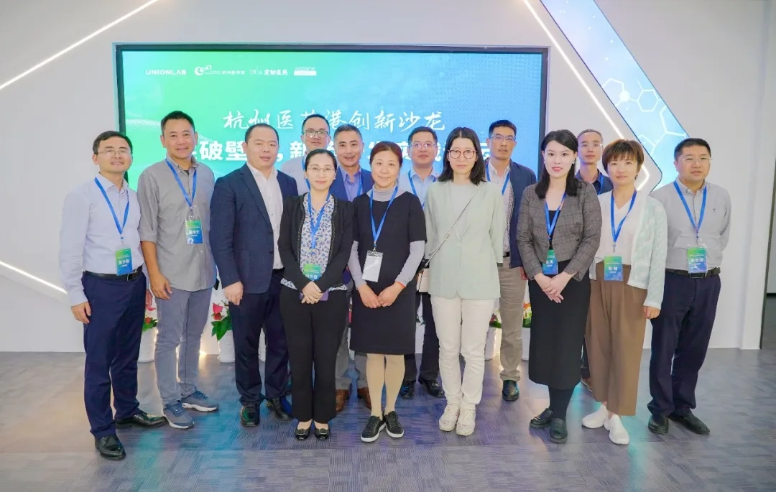

Ms. Lan Jiang, Head of the Central Medical Department, UnionClin (Host)
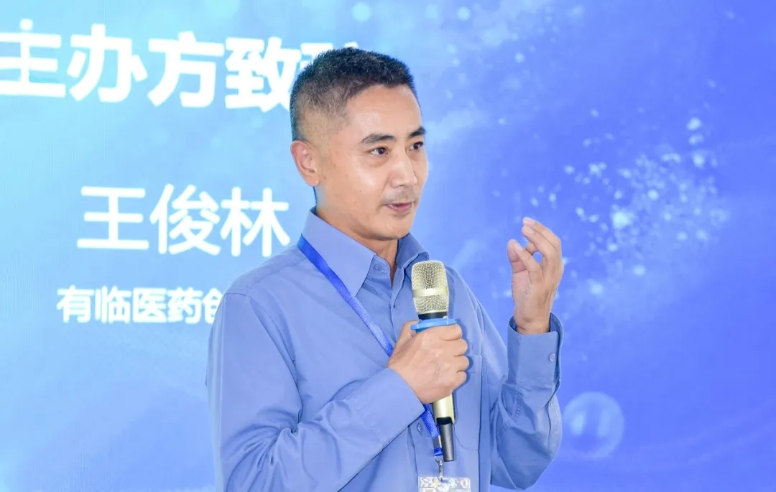
Mr. Junlin Wang, Founder of UnionClin
The development of innovative drugs is inherently a mission-driven endeavor that continuously challenges high difficulties, and clinical studies are the most critical part of it. Currently, the entire industry is in a period of relative adjustment with increasing demands. How to combine the wisdom of clinical experts, the differentiation of drug research and development, and the efficiency of clinical execution, under the premise of compliance, to ensure higher quality, efficiency, and scientific nature of clinical studies, is the persistence and exploration we have been pursuing all along.

Dr. Hongliang Jiang, Founder of Hongren Pharmaceutical
As a strategic partner of UnionClin, Hongren Pharmaceutical focuses on bioanalytical testing in the clinical stage and non-clinical pharmacokinetic research services, comprehensively covering the testing and analysis of generic drugs, chemical innovative drugs, and various biological products, with laboratories in Wuhan, Shanghai, and Guangzhou. It has completed over 1,000 bioanalytical clinical projects and obtained approval for over 300 drugs.
○ TOPIC 1
Operation and Development of Phase I Clinical Study
Professor Zhengbo Song
Director of Phase I Clinical Study Ward, Zhejiang Cancer Hospital
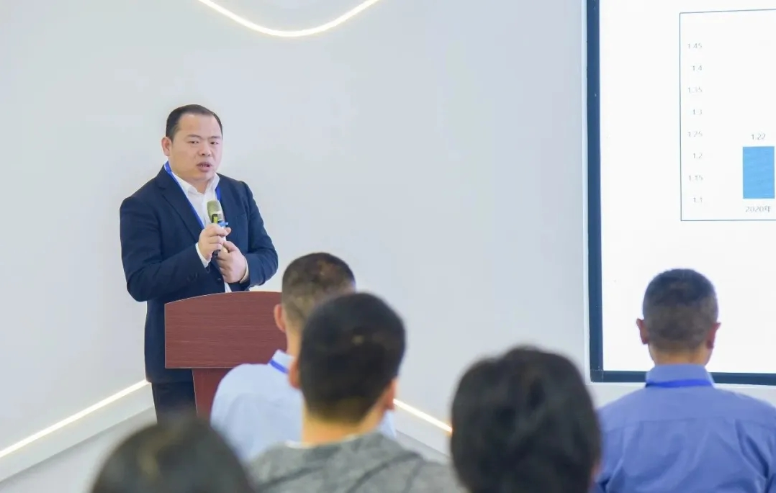
Focusing on New Drug Efficacy Biomarkers and Resistance Mechanisms, Advocating Hospital-Institute Integration, and Actively Promoting the Integrated Model of Basic-Translational-Early Clinical Study
The operation of the Phase I Ward of Zhejiang Cancer Hospital began in July 2020 officially. Over nearly three years, it has initiated more than 230 early-phase oncology clinical studies, with patients from all over the country, becoming a significant early-phase oncology clinical research center in China. Director Song stated that one of the important factors in phase I clinical studies is meeting many excellent strategic partners like UnionClin through research.
Key Points Affecting the Success of Phase I Study
Excellent Investigators: Interested in the project, not just to increase project count; willing to invest time, not being hands-off; controlling patient enrollment, not relying solely on sub-centers; determining advantageous disease areas, overseeing subsequent directions
A Unique "Versatile and Adaptable" Operating Mode of Zhejiang Cancer Hospital — An Open Dedicated Platform Combining Self-Management and Entrusted Management
Based on the above factors, gradually promote a new clinical research model centered on "Patients" and "Sponsors".
Meeting Patient & Sponsor Needs
Integrating Project Approval and Patient Management
All project initiation reviews are conducted by doctors. Before project initiation, there are repeated communication and protocol modifications (especially inclusion/exclusion criteria and DLT definitions). Materials are submitted at the pre-IND stage. Project initiation reviews take 0.5-1 days. The ethics committee meeting is held within the same month; contract review is initiated simultaneously during the meeting. After IND, the ethics approval is obtained, achieving zero-delay initiation and implementing a patient screening priority mechanism. In terms of study layout, to avoid patient dropout and meet the demand for large enrollment, no more than 3 studies are set up at any one site, but not fewer than 2. According to statistics, 30% of patients have been on medication for over half a year, and 20% for over one year.
○ TOPIC 2
Challenges and Solutions in Clinical Studies of New Oncology Drugs
Dr. Haixiong Han
Chief Medical Officer and Registration Director of UnionClin
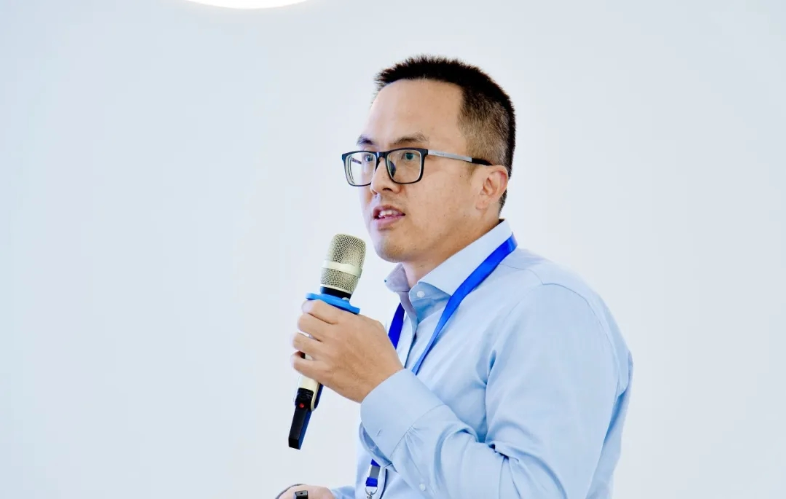
Looking globally, multinational companies and local enterprises usually focus their R&D on tumor types with high incidence rates or better prognoses. Compared with the United States, China's therapeutic targets in the clinical study phase are more crowded. Due to the high complexity of trial protocols, scarcity of clinical research resources, complex trial processes, and increasingly stringent requirements for personnel and execution teams during the clinical development phase of new anti-tumor drugs, the intensely competitive domestic pharmaceutical battlefield has gradually shifted from post-marketing to the clinical study phase.
With such a complex system, success is the exception rather than the rule. Therefore, it is necessary to obtain reliable data as early as possible to provide solid evidence for decision-making at any time. The key to success lies in: building a differentiated product pipeline; seeking suitable partners; strengthening interaction and communication with opinion leaders; execution, execution, execution—launching is the top priority; starting with the end in mind, speed is the key to success.
Strategies for Early Clinical Research of Anti-tumor Drugs
Suitable study sites and PIs, reliable indications, clinical pharmacology support, ingenious statistical design, and efficient patient recruitment
When discussing the selection of research centers and PIs, Dr. Han introduced clinIQ®, a self-developed central database system by UnionClin, which can use quantitative center analysis to identify capable research centers with sufficient patient resources in the field. It provides a "1+2" solution: Leading PI leads + 2 provincial-level oncology hospital investigators participate, with enrollment speed multiple times faster than similar projects.
Facing the increasingly crowded sub-indication tracks, through an actual case, Dr. Han shared UnionClin’s solution: During the initial dose-escalation phase, without stratifying mutation types, rapid enrollment ensures progress; at the target dose, selecting patients with specific genotypes to obtain better efficacy data. Ultimately, this reduces costs for the sponsor, shortens the development cycle, obtains clear results, and gains an advantage in decision-making for Phase II trial design.
Finally, Dr. Han also provided suggestions for the bottleneck issues of traditional patient recruitment platforms: an intelligent patient recruitment platform—MuXiaoZhu, equipped with dedicated medical, operational, and business teams, helping enterprises by offering one-on-one services for patient sourcing, platform operation, medical review, patient management, and recruitment promotion.
○ TOPIC 3
Strategies for Oncology Trial Design and Statistical Considerations
Mr. Lei Zhang
Senior Director of Biostatistics, UnionClin

Dose Exploration Design
For dose optimization, Mr. Lei Zhang pointed out that cytotoxic drugs lack precise targets, and patients have to endure the toxicity associated with higher doses. New therapies, including targeted treatments, at multiple doses under the MTD, accompanied by target saturation, do not show a continued increase in efficacy, resulting in an "efficacy plateau", while off-target toxicity continues to increase.
In 2023, the FDA released a draft guidance on Dose Optimization, mentioning that the dose-response relationship indicated by target toxicity is inconsistent with cytotoxicity, and that several dose groups below the MTD may also have good efficacy. Therefore, when submitting Phase I data subsequently, it is recommended to submit data on dose-toxicity relationships and dose-efficacy relationships. If the MTD is not found, other optimized endpoint indicators can be used to determine the optimal dose.
Mr. Lei Zhang considered that with immunotherapies and molecular targeted drugs, as the drug dose increases, the probability of toxicity increases (monotonically), while efficacy levels off; and since toxicity levels are relatively low and do not reach the MTD, more attention should be paid to the optimal biological dose (OBD).
Finally, Mr. Lei Zhang summarized the key points of Phase II and Phase III trial designs, and provided the audience with a detailed introduction to the professional biostatistics services of Union Laiya.
○ TOPIC 4
Biomarkers Empower Antitumor Drug Development
Dr. Shiwei Lang
Director of Biologics Bioanalysis Department, Hongren Pharmaceutical
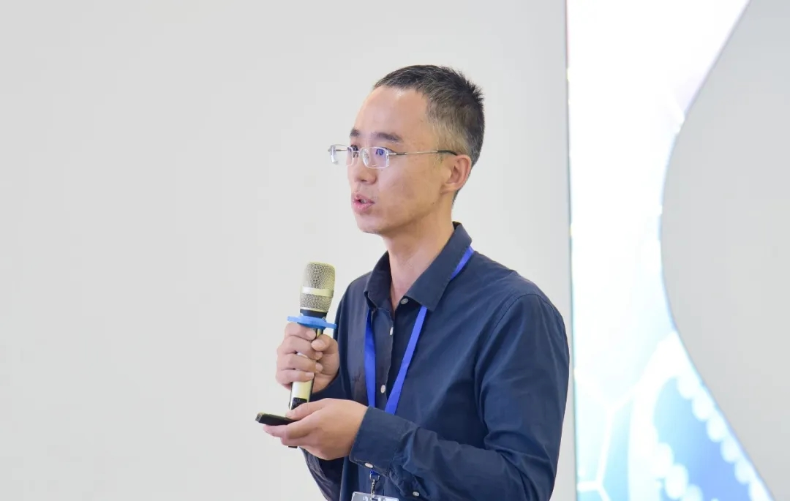
In new drug development, biomarkers can be used for patient stratification, disease diagnosis, efficacy prediction, monitoring drug effectiveness and safety, and serving as surrogate endpoints in clinical studies. Biomarkers can enhance precision medicine for patients and accelerate the development process of antitumor drugs. During the drug development process, biomarker validation and qualification should be based on needs, application context, risks, and benefits, and supported by sufficient clinical validation and methodological validation data. Their development should follow the strategies of "Context of Use" and "Fit for Purpose".
After conducting an in-depth analysis of nine cases, Dr. Lang pointed out that there are a variety of biomarker analysis platforms, with differing contents and requirements for analytical method validation. Therefore, establishing accurate and reliable biomarker analysis methods is particularly important. Analysts, sponsors, pharmacodynamics and pharmacology departments, toxicology, and pharmacokinetics departments need to jointly decide on the testing content and testing plan. Only with full understanding can the results be correctly interpreted.
○ TOPIC 5
Inspection Perspective: How to Better Control Clinical Study Quality Risks
Dr. Xiaoru Sun
Senior Scientist, Jiangsu Health Development Research Center
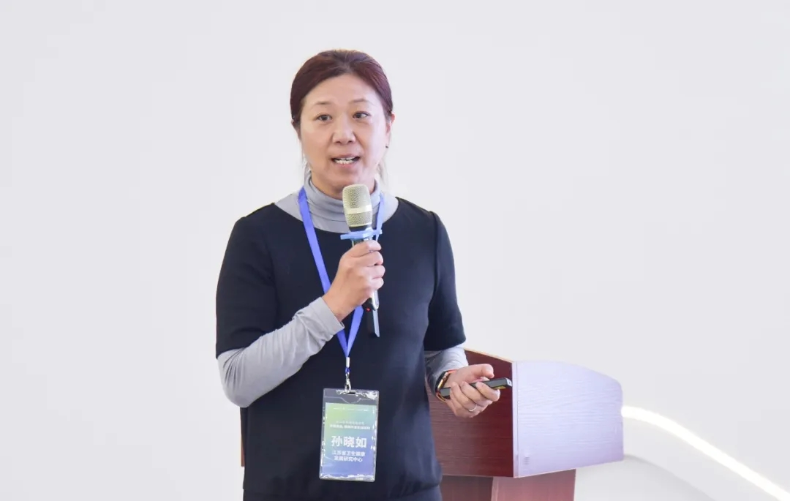
The following content represents Dr. Sun's personal opinions only
Core Requirements of Clinical Studies: Ensure the safety and rights of subjects, and guarantee that trial data is true and reliable.
All aspects involved in clinical studies must strictly fulfill their responsibilities and pay full attention to every step in the process.
On-site inspections of drug development mainly focus on checking the compliance of development and the reliability of data, including on-site inspections of pharmacology and toxicology research, on-site inspections of drug clinical studies, and on-site inspections of pharmaceutical development and production.
On-site inspections of drug clinical studies mainly involve cross-checking the registered application materials with the original records and documents of the clinical studies, evaluating whether the trial implementation, data recording, and result reporting comply with the trial protocol and relevant regulations of drug clinical studies, and also focusing on the protection of subjects. If necessary, samples of the investigational drugs used in the clinical studies may be randomly inspected.
In the "Drug Registration Verification Procedures (Trial)", it is clearly stated that the verification report and verification results only pertain to the scope and content of that particular verification, and do not cover the evaluation of all registration application materials and related development activities of the registration application. For varieties under special approval procedures and priority review and approval procedures, priority will be given to arranging registration verification. Before registration verification, applicants may communicate with the verification center on major issues. During the registration verification, the verification center may, according to work needs, communicate with the applicant.
Key Points and Determination Principles of Drug Registration Verification (Drug Clinical Studies) (Trial)
(Due to limited space, only key content emphasized by Dr. Sun is extracted)
Risk Prevention and Control of Clinical Study Quality Lies with All Participating Parties
1. Sponsor — Primary Responsibility
2. Research Team - Principal Investigator
3. CRC
The roundtable session was hosted by Mr. Xin Wu, Clinical Director of Ranok. The attending guests engaged in a lively discussion with experts on issues such as the types of drugs suitable for BOIN design, dosing issues during the introduction phase of Phase I clinical studies, clinical models recommended for IND, whether Phase II audits involve Phase I data, the necessity of conducting Phase III double-blind studies, and how to balance market demand with clinical application.

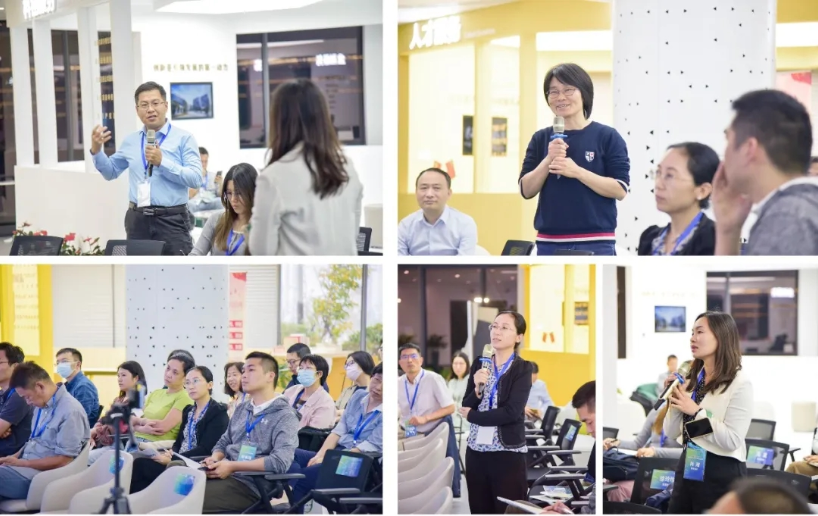
As Mr. Junlin Wang, the founder of UnionClin, has said, "The development of innovative drugs is, in itself, an undertaking that bears a sense of mission." We will continue to work hand in hand with our partners and make efforts and contributions to assist sponsors in overcoming the critical stages of new drug development barriers, to benefit patients with a stronger voice.